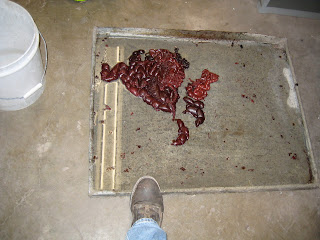Whenever I need to know what stupid people are supposed to be thinking, I read the editorials at the Wall Street Journal. And then, if I want to know what incredibly stupid people are thinking, I'll read the comments from the readers of the WSJ. If these people are a representative cross-section of the business executive population, it's a wonder we don't have a stock crash every other day.
It's really quite sad how, with Murdoch buying that paper, it has just turned into the worst shitrag on the market. Take the following opinion from Bret Stephens on the Great Global Warming Fizzle. According to the WSJ, Bret Stephens received his education at the University of Chicago and the London School of Economics. Really, I didn't know they offered a degree in fluffing.
And the op/ed piece Stephens wrote is unquestionably a professional level fluff job. The question is who is he fluffing? Is this just a feel good piece for the readers? Something to take their minds off how much they suck, compared to the general population? I don't know. It sure as hell isn't supposed to be factual or persuasive or of any useful purpose in terms of a worthwhile dialog.
So I have to assume this is just Bret Stephens' print version of a holiday blowjob to his readers.
Slurp. Slurp. Says Stephens:
"Consider the case of global warming, another system of doomsaying prophecy and faith in things unseen. As with religion, it is presided over by a caste of spectacularly unattractive people pretending to an obscure form of knowledge that promises to make the seas retreat and the winds abate. As with religion, it comes with an elaborate list of virtues, vices and indulgences. As with religion, its claims are often non-falsifiable, hence the convenience of the term "climate change" when thermometers don't oblige the expected trend lines. As with religion, it is harsh toward skeptics, heretics and other "deniers." And as with religion, it is susceptible to the earthly temptations of money, power, politics, arrogance and deceit".So, what I'm guessing is he is none too popular with the evangelical portion of the conservative tribe. You know, the Tea Party types who want us all to buy into the notion that America is a Christian nation first and foremost? To call these people "spectacularly unattractive", for starters, is an interesting form of fellatio. But is that it? Is that his only descriptive for climatologists and those who heed their data? That's hardly a convincing argument. Not to mention that listed among those poor deluded religious types are hard-nosed realists like the US Armed Forces and insurance companies. But their opinion doesn't matter to Stephens. He keeps blathering away like the oily little shill he is:
"Yet a funny thing happened on the way to the climate apocalypse. Namely, the financial apocalypse. The U.S., Russia, Japan, Canada and the EU have all but confirmed they won't be signing on to a new Kyoto. The Chinese and Indians won't make a move unless the West does. The notion that rich (or formerly rich) countries are going to ship $100 billion every year to the Micronesias of the world is risible, especially after they've spent it all on Greece".So, I guess because the tycoons to whom Stephens services have taken a big old shit and fallen over, and have wasted all of the working people's hard-earned monies on a scam, climate change is now no longer a problem. Exemplary reasoning there Slurpy! Smarmy Fuckface continues:
"Cap and trade is a dead letter in the U.S. Even Europe is having second thoughts about carbon-reduction targets that are decimating the continent's heavy industries and cost an estimated $67 billion a year. "Green" technologies have all proved expensive, environmentally hazardous and wildly unpopular duds."Cap and trade is dead. Who killed that again? Who was not going to make a money on that? And, uh, why is Europe accelerating the second phase of their carbon trade system, if it is wrecking their economy? And why is it that the world economies are now putting more monies into renewable energy than fossil fuel in new power generation? Could it be that Stephens is ignoring facts, pretending to an obscure form of knowledge that promises to make the seas retreat and the winds abate? Or is he just yawning that jaw bone as far open as he can to accept cock? Well, he's paid, well for his services, so...
Wait a minute, now, what about all those hacked climategate emails? What's the word on their impact. Oh, right, still doesn''t change the fundamental science. Still doesn't change the consensus.
And who hacked them anyway? Who's in trouble for hacking into lately? Hmm?
And despite the climate "skeptics" shrill denouncements, the evidence against them keeps piling up. Why, even a Koch-funded scientist who was supposed to debunk global wamring says it's all real.
Oops. Sorry, Stephens. Maybe you should just stick to opining about bombing Iran.
Addition: Latest NOAA report suggests we lost the battle of Arctic recovery back in 2006.
Sorry, Bret, you silly little cocksucker, but Greenland is getting green - or will be in your pampered little lifetime:
http://motherjones.com/blue-marble/2011/12/noaa-arctic-report-card-3-fs-2-cs






































